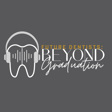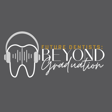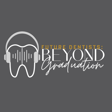
Accountability
About the Hosts:
Dr. Savanah Craig and Dr. Ronnetta Sartor are two dynamic dental professionals exploring life post-graduation. Dr. Savanah Craig, a self-professed perfectionist, navigates her career with an intrinsic drive for precision and a passion for growth through mentorship. Dr. Ronnetta Sartor brings a culture of honesty, humility, and accountability to both her practice and her interactions. As enthusiastic practitioners, they are dedicated to learning from each experience, fostering a supportive environment for their teams, and ensuring comprehensive patient care.
Episode Summary:
In this engaging episode of "Beyond Graduation," Dr. Savanah Craig and Dr. Ronnetta Sartor dive deep into the complexities of owning mistakes and embracing the learning opportunities they present, especially within the field of dentistry. This conversation offers a window into the challenges and growth experiences that come with dental practice and personal development.
In the spirit of authenticity, Dr. Sartor shares her approach to owning mistakes, recognizing them as essential learning moments for both herself and her dental team. She highlights the impact of vulnerability and accountability in building a supportive team culture. Dr. Craig candidly discusses the difficulty of confronting her own mistakes, stemming from her perfectionist tendencies, but also acknowledges the significance of growth through these experiences. Together, they stress the importance of setting patient expectations, understanding the transience of dental work, and communicating effectively for better outcomes.
Key Takeaways:
- Owning up to mistakes is vital for personal growth and building trust within a dental team.
- It's crucial to set realistic expectations with patients regarding the permanence of dental work.
- Maintaining professional humility helps humanize dental practitioners and fosters a culture of mutual learning.
- Effective communication with both team members and patients is key to successfully navigating setbacks.
- Treating others the way they need to be approached and leveraging their strengths can lead to a more harmonious and effective clinical environment.
Connect with Ronnetta Sartor: @dr_sartor
Connect with FutureDentists: @futuredentists
Connect with Future Dentists Beyond Graduation: @futuredentistsbeyondgraduation
-books for further reading sponsored by IgniteDDS:
- Dental Residency Guide and Beyond Graduation eBooks: igniteDDS.com/eBooks
Do not miss the full exploration of real-life experiences and professional insights in this episode of "Beyond Graduation." Dr. Craig and Dr. Sartor offer invaluable perspectives that resonate with dental professionals at any stage of their career. Stay tuned for more conversations that illuminate the path to excellence in both dentistry and life beyond academia.



